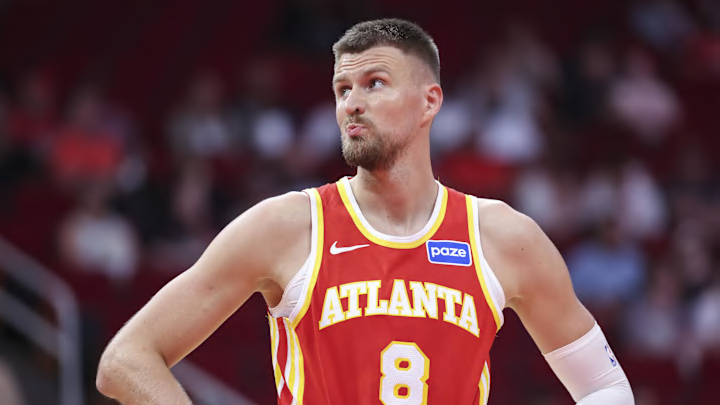What was supposed to be a tune-up game for the new-look Atlanta Hawks squad heading into a challenging early schedule turned into a brutal reality check, as the team dropped its season opener against the Toronto Raptors, 118 to 138.
Bill Simmons, who was high on the Hawks entering the season, said, “So, this is one of those things where you can look at something on paper forever and then you have to actually see it on a basketball court.” He then addressed Wednesday’s performance with, “But I was immediately like, ‘Oh, no.’ because they're not going to be able to rebound, and forget about like the transition defense and some of the other issues in that game.”
While Simmons may be hyperbolic in his reaction to the season opener, the rebounding effort against a Toronto frontcourt that is much weaker than Atlanta’s potential playoff foes was a major concern. The Raptors won the battle on the boards 54 to 34, dominating the Hawks on both ends of the floor.
An early sequence illustrates how the rebounding problem crippled the Hawks. Three minutes into the first quarter, Kristaps Porzingis blocked a post hook attempt from Scottie Barnes, but the Raptors recovered the miss. After a continued high-intensity defense, Toronto missed a second attempt but recovered a second offensive rebound. RJ Barrett was left wide open from three amid the chaos and converted on this look.
If the Hawks cannot rebound, their excellence on both ends of the floor is minimized. Atlanta will never be an elite offensive rebounding team as a consequence of their five-out offense, but they cannot afford to give teams extra possessions. This weakness was particularly pronounced in Wednesday's loss, where Atlanta’s poor performance from the field yielded a greater rebounding disparity.
Who is responsible, and how can the problem be solved in-house
The Hawks’ power forward and center rotation during the competitive portion of the game consisted of Jalen Johnson, Kristaps Porzingis, and Onyeka Okongwu.
For all of his strengths, Porzingis has been a relatively weak rebounder. He forfeits most offensive rebounding opportunities by spacing the floor, but this is a compromise that is overall beneficial to the Hawks. On defense, his high center of mass and long frame make it easier for stronger centers to knock him out of positions, as Jakob Poeltl and Sandro Mamukelashvili displayed Wednesday. Still, Porzingis is not necessarily the problem; the Hawks should have the size to assist him.
Johnson is an excellent defensive rebounder whose ability as a one-man transition threat motivates him to crash the boards. Still, the Hawks were outrebounded with Johnson on the floor, and his contested rebounding percentage could indicate why. Of his seven boards, just one was contested. Perhaps this would not have been a problem if Clint Capela were by his side, but Atlanta will need Johnson to be more involved to cover for Porzingis.
Okongwu held his own on the glass, but the Hawks will need a more inspired rebounding performance moving forward. Simmons later mentions that Porzingis's rebounding was not an issue in Boston because Jayson Tatum was able to support him on the glass. While Johnson might not be the rebounder Tatum is yet, he can be the long-term solution on the glass.
Quin Snyder will have to address this alongside the team’s embarrassing performance in transition defense before today's matchup against the Orlando Magic.
